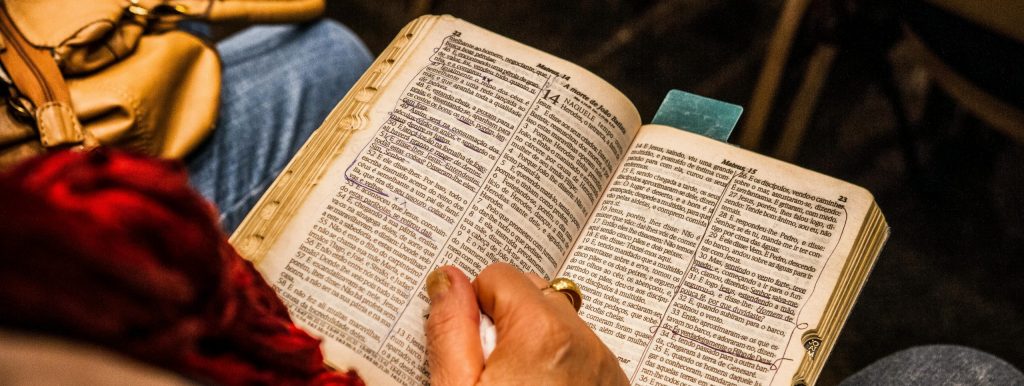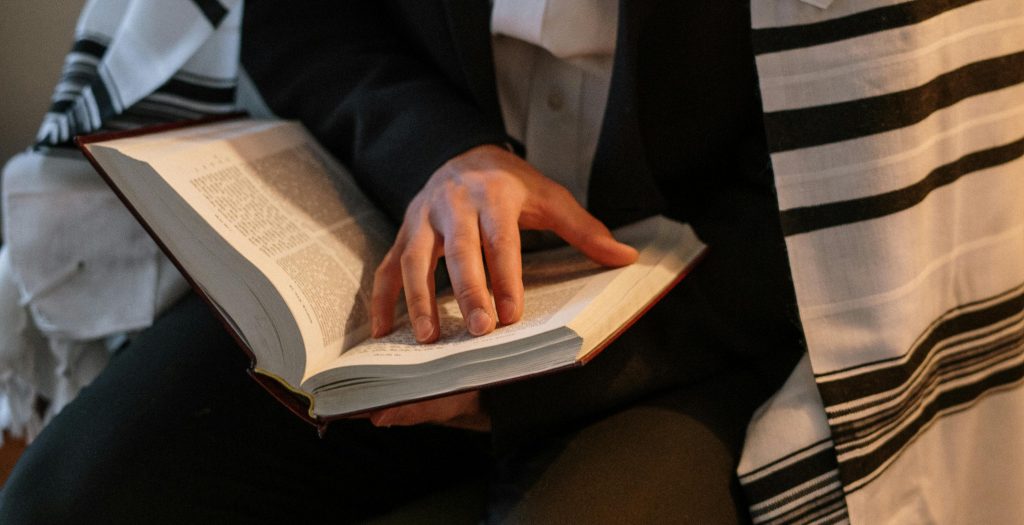
Jason Forbes
Disability Advocate

Isaiah begins by levelling a charge of disobedience against God’s people, (Isa 1:2–6), and speaks of a judgment against God’s people (vv. 7–8). The relationship between God and his people has become disordered as ritual has been prioritised over righteousness (vv. 12–17). To really worship God is to engage in acts of justice and mercy, and this is being neglected. There’s a sense in which a greater disorder needs to occur in terms of destroying the nation before God’s people understand the disorder that they are currently in before they can enjoy an ordered relationship with him again.
Yet, as God brings them to a more devastating state of disorder, he can also bring them to an even greater state of order more than what they enjoyed before. Isaiah also preaches comfort as God promises to restore his people after being disordered by his judgement (40:1–5). This would seem impossible given that it was God that had judged them in the first place. Yet, Isaiah reassures his listeners by appealing to God’s creative acts in creation (v. 12). Just as in his might God brought order to creation, so too can God bring order to his people – and, indeed, he will!
Isaiah speaks about God’s appointed servant who will engage in acts of justice and mercy – something that his people were to do but failed resulting in disorder (42:1–4). As a result of these acts of justice and mercy, those experiencing oppression will be released (v. 7). In other words, Isaiah is anticipating a time when an order will be enjoyed greater than anything that has happened before. This would seem ridiculous given that oppression had been experienced because of God’s judgement. Yet again, Isaiah draws his assurance from God’s creative acts in creation. Just as God stretched out the heavens and laid out the earth, so too will he establish justice and mercy among his people (v. 5).
Isaiah also speaks of God restoring the relationship that he has with his people by forgiving them (44:21–22). So momentous will be the occasion that all of creation will be caught up in the praise and worship of God (v. 23). Again, this expression of rapturous worship seems out of place given God had judged his people precisely because of their sin. How and why would God now forgive them? Isaiah draws assurance from the fact that it is God who brings about judgement, and, more importantly for our purposes, from God’s creative acts in creation (v. 24–28). Just as God brought about judgement against his people, and just as God stretched out the heavens and spread out the earth, so too can God forgive his people.
Isaiah promises God’s people that they will be released from exile and will rebuild his city through Cyrus, a pagan king (45:1, 13). Such a promise would be incomprehensible to all but a few of Isaiah’s listeners. It was pagan kings who levelled Israel and dragged the people off to exile in the first place. Though Cyrus did not drag the Israelites off to exile, he was the sort of king who would. How could Isaiah have had such confidence in the incomprehensible? Because of God’s creative acts in creation. Just as God made the earth, created humanity, stretched out the heavens, and commanded the sun and the stars, so too can God stir up righteousness in a pagan king, and cause him to rebuild God’s city and send God’s people home.

Through Isaiah, God calls his people to assembly so that he may teach and prosper them (48:12–19). God will provide for this by having the nation that took them into exile permit them to return home (vv. 14–15). This would have seemed to be as equally incomprehensible as having a pagan king rebuild the city. It was because God had sent them into exile that they were no longer able to assemble. Yet, Isaiah turns to God’s creative acts in creation to draw assurance. Just as God assembled creation be laying the foundation of the earth and spreading out the heavens (v. 13), so too will God assemble his people.
Finally, Isaiah says that God is faithful to his people even when they are not faithful to him (51:12–16). This would have been a tremendous encouragement to those who were aware of the sin of the nation, and the significance this would have for their ongoing relationship with God. The people are described as fearing man who pales into insignificance in comparison to him (v. 12). Yet God will still comfort his people and deliver from the oppressor (v. 13). God’s people can be assured of this just as God brought creation to order by stretching out the heavens and laying the foundation of the earth (vv. 13, 16).
Many of us have shipwrecked our faith on the jagged rocks of worldly concerns not realising the erroneous course we had set for ourselves towards health, wealth, and ease. Many of us have prioritised pleasure over piety, and not given a thought to praise God for his blessings. Perhaps some of us have realised that the disorder we experience is due to the choices that we have made and have come to believe that there is now nothing left for us except disorder. This simply isn’t true. God can bring order from our spiritual disorder. God can bring us to a state of order better than what we can possibly imagine. God can release us from any form of oppression and abundantly bless us with justice and mercy. He can use the most unlikely people to bring about his purposes for us – even our enemies. God can call us to himself so that we may learn from him and grow in a relationship with him. We can be confident that he will create order from disorder even when we are unfaithful because he is faithful. All we need to do is turn to God and trust him.
